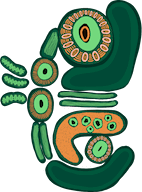
Children’s Dental Visits: 4 Key Reasons Your Child Should Visit the Dentist Early
Helping your child establish good oral hygiene habits early in life gives them a great head start for achieving a healthy and beautiful smile for life. As a parent, you’re the perfect role model for you child, so if they see you brushing your teeth morning and night, and you then do the same for them, they will view caring for their teeth as being a normal part of daily life.
As part of establishing this routine for your child, it is important to not only supervise and encourage your child’s daily oral care regime, but to also partner with your dentist as a co-carer for your child’s teeth. By starting six monthly visits to your dentist early on, this too will become a normal process for your child and importantly, not something to be feared.
1.Visiting at age 1 or with the first tooth?
It is generally recommended that children see a dentist for the first time when their first tooth becomes visible or at least by the time they reach 12 months of age.
- Familiarisation – While this may seem early, this visit allows the dentist to meet your child and for your child to become familiar with the dental environment.
- Early checks – The dentist will check the status of your child’s teeth and gums, and most importantly will provide advice on how best to care for your child’s teeth now that they have started to arrive.
- Preventative advice – Your dentist will guide them on brushing, flossing, fluoride use and diet and pacifier habits to help prevent decay occurring, especially if they are having sugary foods and drinks.
2.The 6‑month dental cycle: Why it matters
Regular check-ups every six months help by:
- Reinforcing oral hygiene routines with parents and kids
- Identifying hidden plaque or overlooked areas and offering brushing/flossing tips
- Ensuring timely detection and simple treatment of decay
3.Dental tips for the whole family
- Brush twice daily using a fluoride toothpaste
- Supervise brushing and flossing until at least age 7
- Limit sugary snacks and drinks; encourage water and fresh fruit/veg
- Avoid prolonged bottle-feeding or sugary pacifiers to reduce decay risk
4.Finding a child-friendly dentist
- A comfortable, welcoming environment for children
- Dentists with experience treating toddlers and infants
- Appointment times that fit around school schedules
Book your child’s regular dental check-up with a child-friendly dentist at your local nib Dental centre.
